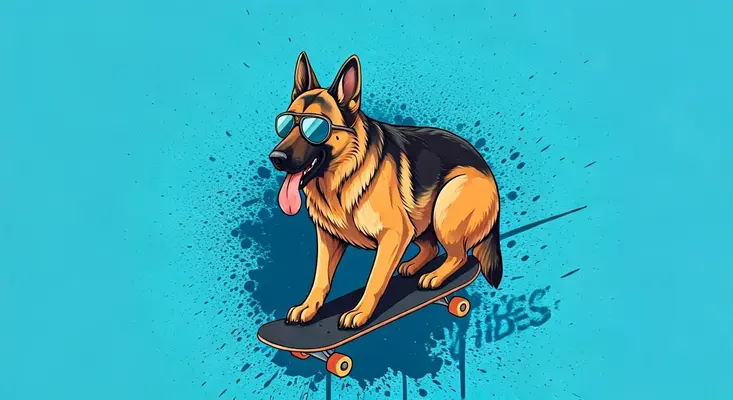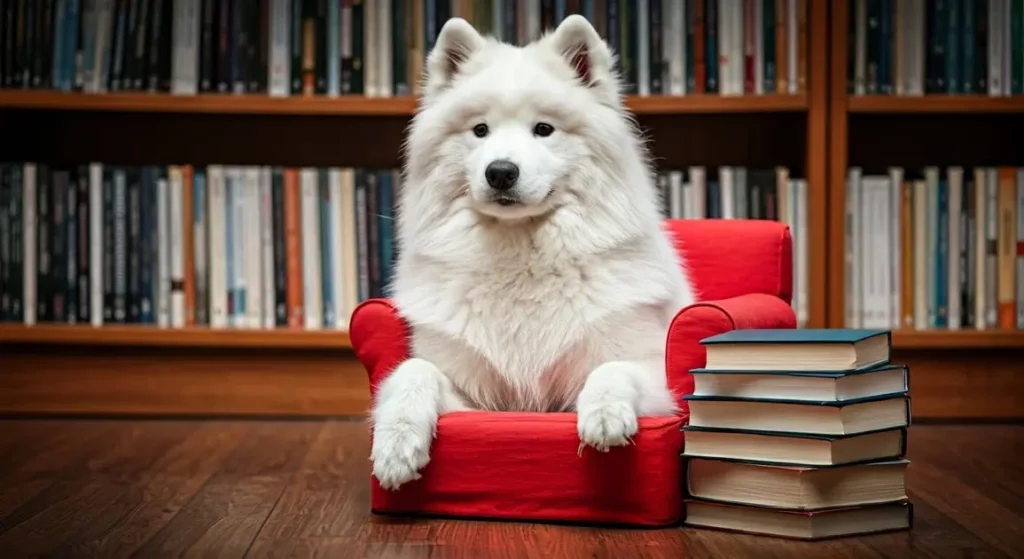Ever wondered what dogs with unique talents can do? From Border Collies herding with precision to Labradors detecting cancer, these furry friends showcase abilities that go beyond fetching a ball.
Trust me, understanding dogs with unique talents can deepen your bond with your pet and inspire new ways to engage them, especially as they bring joy and purpose to our lives every day.
Whether you’re a dog owner or just a fan, you’ll be amazed at what these talented canines can achieveand we’re just getting started with the stories ahead.
These talents aren’t just impressive; they can enhance your relationship with your dog, offering new ways to interact and appreciate their skills.
Given how central dogs are to many households, exploring these abilities now can make a real difference in how you care for and enjoy your pet.
Types of Dogs with Unique Talents
Dogs exhibit a variety of unique talents that extend far beyond the typical skills of fetching or basic obedience.
These talents often reflect the breeds’ histories and purposes, showcasing their remarkable capabilities in different roles. Below are some notable types of unique talents found in various dog breeds.

Herding and Working Skills
Certain breeds, such as the Border Collie, are renowned for their exceptional herding instincts.
These dogs possess a natural ability to manage and guide livestock, demonstrating impressive agility and intelligence in the process.
Working dogs like the German Shepherd and Rottweiler also display remarkable skills in roles that include guarding property and assisting law enforcement.
Search and Rescue Abilities
Search and rescue dogs are trained to locate missing persons and objects using their acute sense of smell and hearing.
Breeds like Labrador Retrievers and Golden Retrievers excel in various scenarios, from avalanche rescues to disaster recovery efforts.
Their training is rigorous and begins early in their lives, honing their skills for high-stakes environments.
Detection and Service Skills
Detection dogs are trained to identify specific scents, such as narcotics, explosives, or even certain medical conditions.
Breeds like the Belgian Malinois and Bloodhound are commonly utilized in law enforcement and healthcare settings for their keen sense of smell and intelligence.
Service dogs, on the other hand, are trained to assist individuals with disabilities, performing tasks that enhance their owners’ independence and quality of life.
Therapy and Emotional Support
Therapy dogs provide comfort and emotional support in various environments, including hospitals, schools, and nursing homes.
Their gentle demeanor and intuitive nature help to reduce anxiety and promote emotional healing in patients.
Notable therapy dogs, like Ricochet, demonstrate how these animals can profoundly impact people’s lives through their unique talents for empathy and connection.
Athleticism and Agility
Some breeds, such as the Portuguese Water Dog, are known for their athletic abilities, excelling in activities like swimming and agility courses.
These dogs not only showcase their physical talents but also engage in competitive sports that highlight their energy and training.
Notable Examples
Hero and Sara
One of the standout performances on talent shows is that of Hero, a border collie, who captivated audiences alongside his owner, Sara Carson, on America’s Got Talent.
Their act showcased Hero’s agility and obedience through intricate sequences of tricks, including memorable themes such as a pirate fight and a burglary walk.
Tragically, Hero passed away in March 2024, leaving a lasting legacy of talent and companionship.
Olate Dogs
The Olate Dogs, another remarkable group featured on America’s Got Talent, have showcased their unique abilities and charm through entertaining performances.
Their routines include a combination of tricks that highlight the intelligence and physical prowess of the dogs involved, captivating audiences with their synchronization and skill.
Balto
Balto, a Siberian Husky, is famously known for his heroism during a life-saving mission in Alaska, where he led a team of sled dogs to deliver diphtheria antitoxin serum to Nome during an outbreak in 1925.
This extraordinary feat not only saved countless lives but also made Balto a symbol of courage and resilience, immortalizing him in history and popular culture.
Laika
Laika, the first dog to orbit Earth, represents a significant milestone in both canine history and space exploration.
Her journey into space aboard Sputnik 2 in 1957 marked a pivotal moment in human and canine collaboration, highlighting the extraordinary capabilities and sacrifices of dogs.
Laika’s story continues to inspire discussions about the ethics of animal participation in scientific endeavors.
Hachikō
The legendary Hachikō is renowned for his unwavering loyalty, famously waiting at Shibuya Station every day for his owner, who had passed away.
Hachikō’s dedication has been commemorated with a bronze statue at the station, which serves as a testament to his loyalty and has become a cultural icon in Japan.
His story has been adapted into various media, further cementing his status as one of the most loyal dogs in history.

Noteworthy Breeds
Certain breeds, such as the Border Collie, Portuguese Water Dog, and the Japanese Chin, are celebrated for their extraordinary talents that extend beyond typical dog abilities.
The Border Collie is particularly known for its herding instincts, while the Portuguese Water Dog excels in swimming, and the Japanese Chin is noted for its balancing tricks.
These unique skills underscore the diverse talents found within the canine world, contributing to their roles as companions and workers alike.
Through these notable examples, the remarkable capabilities of dogs with unique talents become evident, showcasing their contributions to history, culture, and human companionship.
Benefits of Having a Dog with Unique Talents
Owning a dog with unique talents can significantly enhance the quality of life for both the dog and its owner. These dogs often exhibit extraordinary abilities that can turn everyday experiences into exciting adventures.
For instance, dogs capable of climbing trees, navigating obstacle courses, or tracking scents over long distances can engage their owners in physically and mentally stimulating activities, fostering a more dynamic lifestyle.
Enhanced Bonding and Interaction
The unique skills of these dogs often lead to improved bonding experiences between the dog and its owner. Engaging in activities that highlight the dog’s abilities allows for shared experiences that strengthen the relationship.
For instance, participating in dog competitions not only showcases the dog’s talents but also provides opportunities for owners to bond with their pets through training and teamwork. This interaction can enhance the emotional connection and create lasting memories.
Improved Mental and Physical Health
Having a talented dog can also contribute to the owner’s mental and physical health. The companionship of dogs has been shown to reduce stress and improve overall well-being.
Dogs that require regular physical activity, such as those skilled in agility or herein, encourage their owners to stay active, which can lead to improved physical fitness and a healthier lifestyle.
Moreover, the joy and awe that come from witnessing a dog perform remarkable feats can boost the owner’s mood and overall happiness.
Benefits in Specific Contexts
Dogs with unique talents often play crucial roles in various professional and therapeutic contexts.
For example, service dogs and therapy dogs are trained to assist individuals with disabilities, providing not just companionship but also performing specific tasks that enhance the quality of life for their handlers.
Research indicates that a strong bond between these working dogs and their handlers can lead to better performance in high-stress situations, contributing to the efficacy of services provided in settings such as therapy and law enforcement.
Lifelong Learning and Adaptability
Owning a dog with unique talents fosters an environment of continuous learning. Owners are often inspired to learn new skills and training techniques to nurture their dogs’ abilities, which can lead to personal growth and a sense of accomplishment.
This aspect of dog ownership can keep the relationship fresh and engaging, promoting adaptability as both the dog and owner learn from each other.
Challenges and Considerations
Behavior Assessment and Training
When selecting dogs for roles that leverage their unique talents, thorough assessments are crucial. The interview-based assessment framework provides a structured method to investigate concerning behaviors using an Applied Behavior Analysis (ABA) approach.
This framework not only identifies target behaviors, direct antecedents, and consequences but also considers underlying factors such as nutrition, sleep, and daily schedules.
However, the comprehensiveness of such assessments can be time-consuming and may require significant investment in terms of the client’s time and effort to implement effectively.
Variability in Talent Recognition
Recognizing the innate talents of dogs can be complex due to variability in acceptable characteristics across different organizations.
For instance, undesirable traits might be tolerated differently depending on the program’s goals, making it challenging to compare success rates between training organizations.
The subjective nature of decision-making in dog training often based on the judgments of training staff rather than objective evaluations can lead to inconsistencies in recognizing a dog’s potential.

Training and Development
While all dogs have the potential to develop unique talents, not every breed excels in every task.
Breeds such as Border Collies, known for their herding instincts, exemplify how genetics can influence a dog’s abilities.
Nonetheless, proper training is essential; with the right approach, even mixed-breed dogs can uncover remarkable skills.
The success of training can significantly depend on the methods employed and the handler’s commitment, which can present challenges for both trainers and dog owners.
Resource Allocation
Developing a training program that maximizes a dog’s unique talents often requires substantial resources, including time, finances, and access to experienced trainers.
For breeds that exhibit extraordinary capabilities, specialized training regimens may be necessary to refine these skills effectively.
Moreover, ongoing support and evaluation are essential to ensure that both the handler and the dog remain engaged and motivated throughout the training process.
Practical Implications for Owners
Understanding these talents can deepen the bond between owners and dogs, offering new engagement methods.
For instance, training a dog in agility can channel a Border Collie’s energy, preventing boredom, while scent games can satisfy a Bloodhound’s instincts.
These activities not only enhance mental stimulation but also strengthen the human-canine relationship, especially given dogs’ central role in many households.
Owners should consider their lifestyles when leveraging these talents. Active owners might enjoy agility with Whippets, while those in urban settings could explore scent work indoors.
Socialization is key, as seen with Beagles, to ensure talents like tracking don’t lead to chasing behaviors, requiring leash control in unfenced areas.
Detailed Comparison Table
Below is a table summarizing key talents and famous examples for easy reference:
| Talent | Examples | Famous Dogs |
|---|---|---|
| Scent Detection | Tracking, medical condition detection (cancer, low blood sugar) | Endal (Labrador, assistance work) |
| Herding | Guiding livestock with precision | Chaser (Border Collie, 1,000-word vocabulary) |
| Artistic Abilities | Canine freestyle dancing, paw painting | Rin Tin Tin (German Shepherd, acting) |
| Problem-Solving | Learning complex commands, interacting creatively | Lagotto Romagnolo (painting with paws) |
Conclusion
Dogs with unique talents represent the pinnacle of canine achievement, demonstrating the extraordinary potential that exists within our four-legged companions.
From life-saving heroes to emotional support providers, these remarkable animals continue to enrich human lives in countless ways.
Their stories inspire ongoing research and development in canine training, ensuring that future generations will continue to benefit from these extraordinary partnerships.
The significance of dogs with unique talents extends far beyond individual achievements; they enrich human lives, foster emotional bonds, and serve vital roles in society.
As we continue to discover and nurture these remarkable abilities, the future holds endless possibilities for these extraordinary canine companions, making them an invaluable part of our world and a testament to the incredible potential of the human-animal bond.



